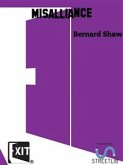To the Rev. J. Jowett
Willow Lane, St. Giles, Norwich,
Feb. 10th, 1833.
Revd. and dear Sir,—I have just received your communication, and notwithstanding it is Sunday morning, and the bells with their loud and clear voices are calling me to church, I have sat down to answer it by return of post. It is scarcely necessary for me to say that I was rejoiced to see the Chrestomathie Mandchou, which will be of no slight assistance in learning the Tartar dialect, on which ever since I left London I have been almost incessantly occupied. It is, then, your opinion, that from the lack of anything in the form of Grammar I have scarcely made any progress towards the attainment of Mandchou; perhaps you will not be perfectly miserable at being informed that you were never more mistaken in your life. I can already, with the assistance of Amyot, translate Mandchou with no great difficulty, and am perfectly qualified to write a critique on the version of St. Matthew’s Gospel, which I brought with me into the country. Upon the whole, I consider the translation a good one, but I cannot help thinking that the author has been frequently too paraphrastical, and that in various places he must be utterly unintelligible to the Mandchous from having unnecessarily made use of words which are not Mandchou, and with which the Tartars cannot be acquainted.
Willow Lane, St. Giles, Norwich,
Feb. 10th, 1833.
Revd. and dear Sir,—I have just received your communication, and notwithstanding it is Sunday morning, and the bells with their loud and clear voices are calling me to church, I have sat down to answer it by return of post. It is scarcely necessary for me to say that I was rejoiced to see the Chrestomathie Mandchou, which will be of no slight assistance in learning the Tartar dialect, on which ever since I left London I have been almost incessantly occupied. It is, then, your opinion, that from the lack of anything in the form of Grammar I have scarcely made any progress towards the attainment of Mandchou; perhaps you will not be perfectly miserable at being informed that you were never more mistaken in your life. I can already, with the assistance of Amyot, translate Mandchou with no great difficulty, and am perfectly qualified to write a critique on the version of St. Matthew’s Gospel, which I brought with me into the country. Upon the whole, I consider the translation a good one, but I cannot help thinking that the author has been frequently too paraphrastical, and that in various places he must be utterly unintelligible to the Mandchous from having unnecessarily made use of words which are not Mandchou, and with which the Tartars cannot be acquainted.









